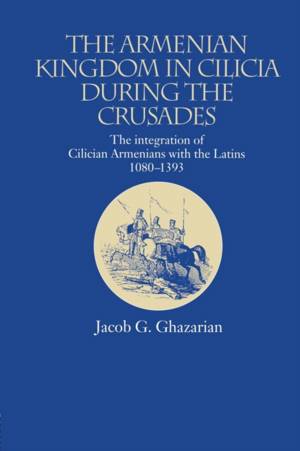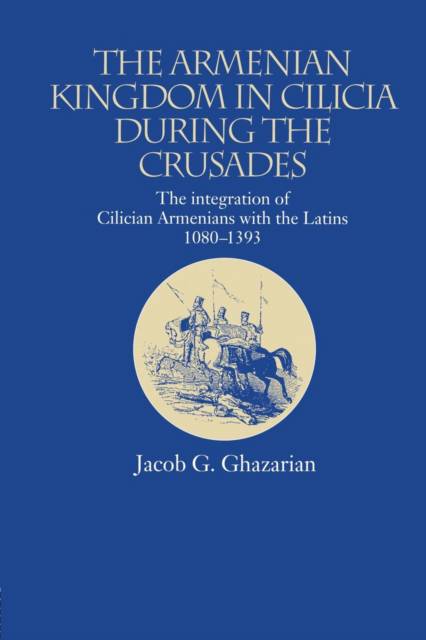
- Afhalen na 1 uur in een winkel met voorraad
- Gratis thuislevering in België vanaf € 30
- Ruim aanbod met 7 miljoen producten
- Afhalen na 1 uur in een winkel met voorraad
- Gratis thuislevering in België vanaf € 30
- Ruim aanbod met 7 miljoen producten
Zoeken
The Armenian Kingdom in Cilicia During the Crusades
The Integration of Cilician Armenians with the Latins, 1080-1393
Jacob Ghazarian
€ 100,95
+ 201 punten
Uitvoering
Omschrijving
This unique study bridges the history of the Crusades with the history of Armenian nationalism and Christianity, providing a history of the Crusades merged with a history of the Armenian Christians, who were pivotal in the founding of Crusader principalities and of the Anatolian kingdom of Cilicia.
Specificaties
Betrokkenen
- Auteur(s):
- Uitgeverij:
Inhoud
- Aantal bladzijden:
- 260
- Taal:
- Engels
- Reeks:
Eigenschappen
- Productcode (EAN):
- 9781138862579
- Verschijningsdatum:
- 04/03/2015
- Uitvoering:
- Paperback
- Formaat:
- Trade paperback (VS)
- Afmetingen:
- 156 mm x 234 mm
- Gewicht:
- 367 g

Alleen bij Standaard Boekhandel
+ 201 punten op je klantenkaart van Standaard Boekhandel
Beoordelingen
We publiceren alleen reviews die voldoen aan de voorwaarden voor reviews. Bekijk onze voorwaarden voor reviews.







